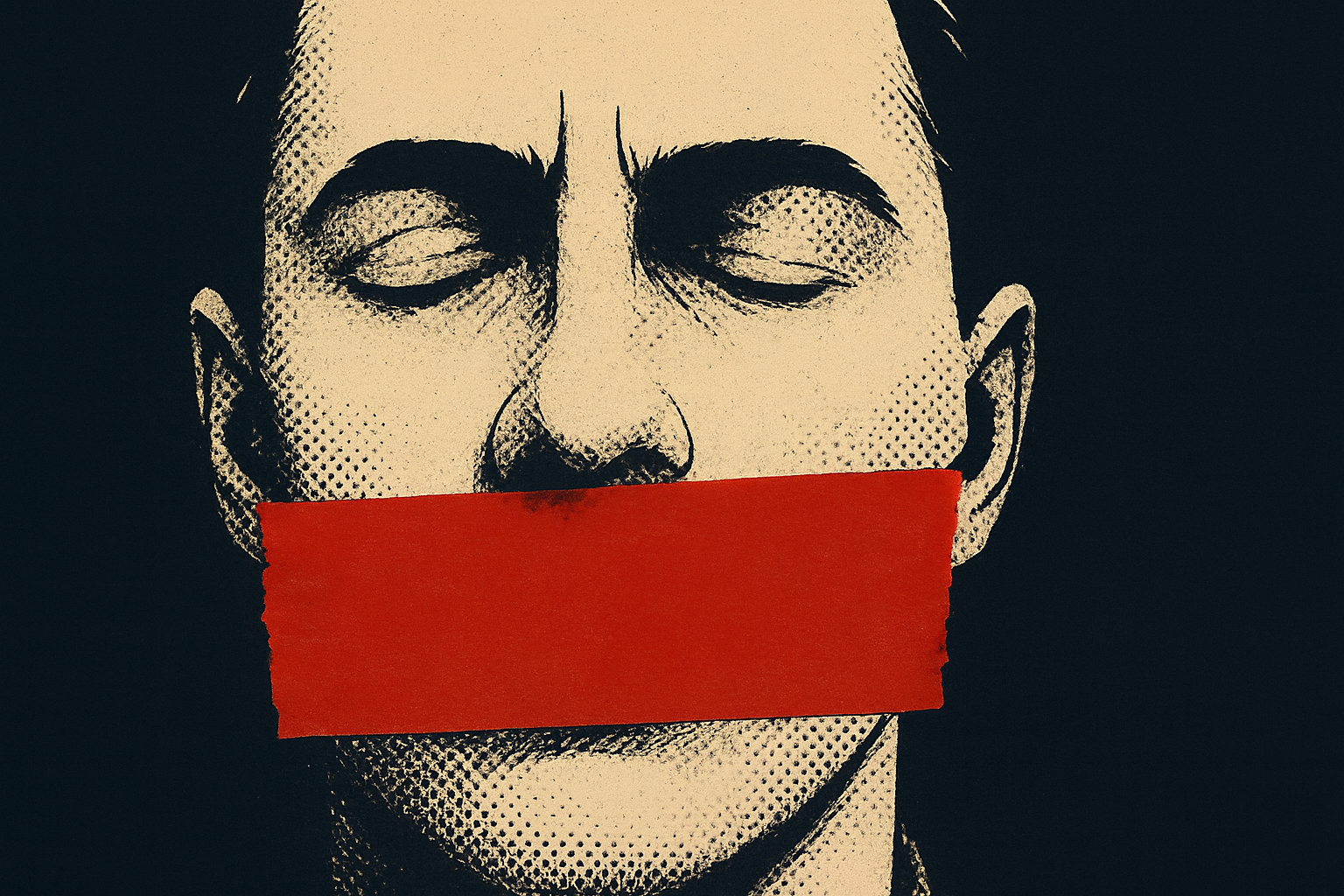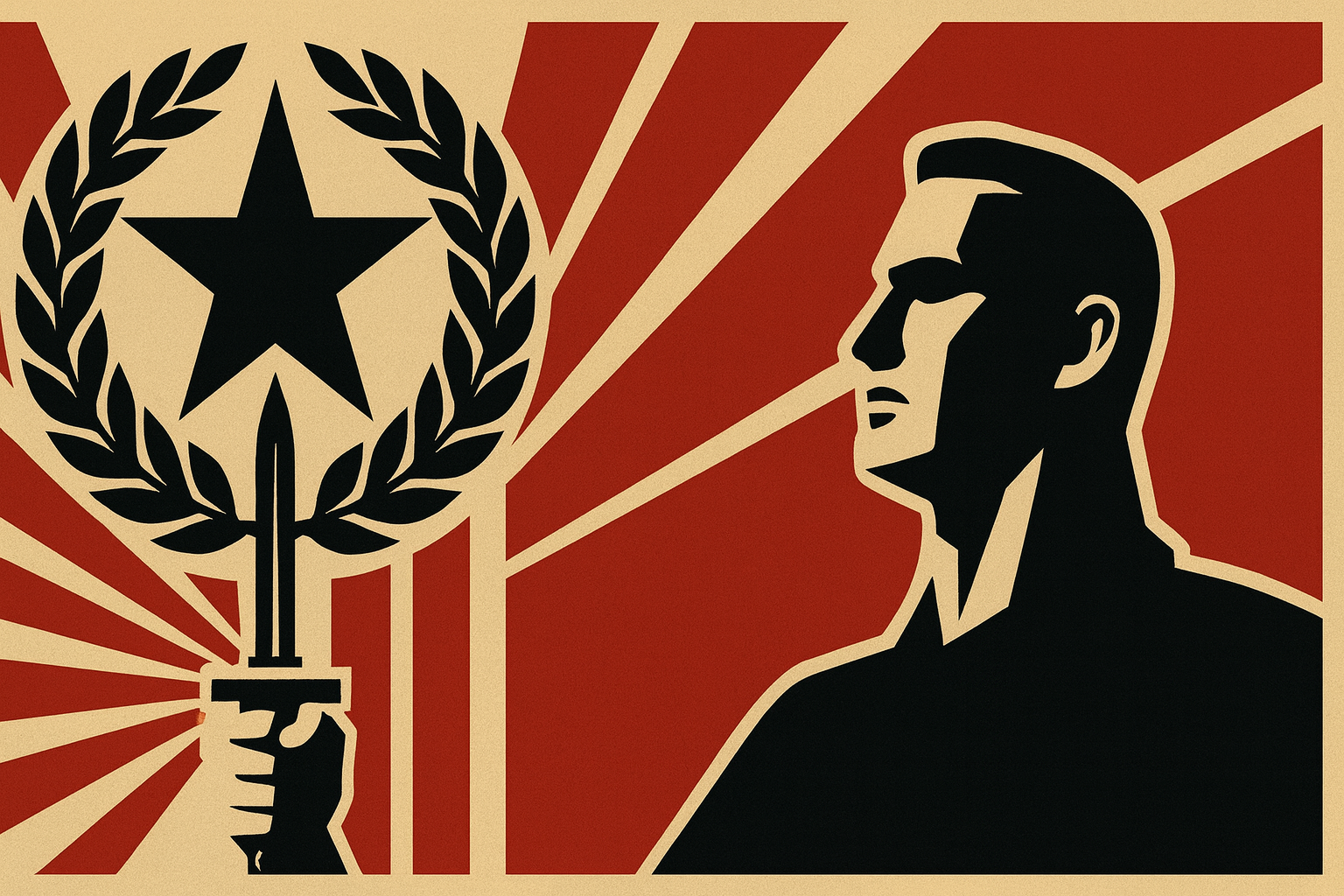A growing movement in Western society seeks to vilify religious communities—particularly Christians—who hold convictions that challenge progressive orthodoxy. The method is simple but effective: portray Christian Americans as authoritarian bigots hungry for cultural dominance. In this narrative, pastors become tyrants, churches are viewed as breeding grounds for oppression, and moral convictions are recast as fascist dogma.
Never mind the irony: many of these same critics advocate for abortion on demand, the erosion of parental rights, and the silencing of dissent—all in the name of justice.
One of their most effective rhetorical weapons has been to label anyone who holds both a Bible and the U.S. Constitution as a “Christian fascist.” Cue the collective gasp.
What Is “Christian Fascism”?
Fascism is a political ideology marked by authoritarian power, centralized control, and often, the supremacy of one group over others based on race, religion, or nationality. It suppresses dissent, elevates the state, and eliminates individual liberties.
Christian fascism, however, is a recent and loaded term. It gained traction in left-wing discourse in recent years, with outlets like Vice defining “Christo-fascists” as those who believe they are engaged in a “primordial battle between good and evil.” According to that logic, simply believing in objective moral truth is now grounds for fascist classification. Convenient.
The term was coined in 1970 by liberation theologian Dorothee Sölle, who claimed that attempts to place Christ at the center of public life were inherently dangerous. She argued that such efforts were not only dictatorial at heart but also laid the groundwork for “American fascism.”
But here’s the problem with that logic: every citizen in a free society has the right to bring their values into the public square. When secular activists advance abortion or transgender ideology, it's called advocacy. When Christians speak up for the unborn or for biblical sexual ethics, it's branded as fascism.
When believers defend parental rights in education or medicine, it’s labeled dangerous. But when those rights are stripped away in the name of progress, it’s seen as protecting children from their own families.
This hypocrisy reveals the true aim: to delegitimize Christian convictions not on the basis of merit, but by branding them as threats to democracy.
The Weaponization of History
Writers like Sinclair Lewis and James Luther Adams warned that fascism could come to America “wrapped in the flag and carrying a cross.” They weren’t alone. Journalist Chris Hedges, in American Fascists, claims Christian conservatives have “seeded their cadre into the political system,” building schools, media platforms, and lobbying groups in preparation to take power.
To them, any fusion of Christian moral ideals with civic responsibility is inherently tyrannical. But this is a gross misrepresentation of both Christianity and fascism.
No major Christian denomination has advocated for autocracy, religious supremacy, or forced conformity. Supporting candidates who share Christian values is not a call for theocracy—it’s democratic representation. Speaking biblical truth in public is not coercion—it’s conviction. And living by one’s conscience is not fascism—it’s freedom.
What Scripture Actually Teaches
The Bible does not teach religious supremacy or authoritarianism. Ancient Israel’s theocracy was rooted in God’s justice and mercy—not in ethnic domination or coercive power. In the New Testament, the Apostle Paul writes, “There is neither Jew nor Gentile, slave nor free, male and female, for you are all one in Christ Jesus” (Gal. 3:28). Christianity levels hierarchies—it does not erect them.
Christ’s kingdom is not built by force. It is built by love, sacrifice, and truth. The Church’s mission is not to dominate culture but to redeem it—to serve, speak, and suffer for what is good.
To label Christians as fascists for doing so is not only intellectually dishonest—it is dangerously inflammatory.
A Cultural Strategy to Discredit Faith
What we’re seeing is not a legitimate critique of extremism. It is a calculated attempt to discredit Christianity by conflating conviction with tyranny.
Why? Because the ultimate goal of secular ideologues is not to coexist with religion—it’s to replace it. Their vision is a godless utopia where self reigns supreme, moral constraints are abolished, and faith is relegated to the margins of private life.
It’s a world without conscience, without virtue, without love. A world where truth is silenced—not because it’s wrong, but because it’s inconvenient.
So, who are the real fascists?
The ones silencing dissent?
The ones criminalizing conviction?
The ones who call disagreement “dangerous” and faith “extreme”?
Make no mistake: we should always reject Christian nationalism or any ideology—religious or otherwise—that exalts one group over another. But we must also reject the dishonest slander that paints all faithful believers as would-be tyrants.
This is not a battle between fascists and freedom lovers.
It’s a battle between those who want to speak freely—and those who want to control who gets to speak at all.
.png)





.svg)
